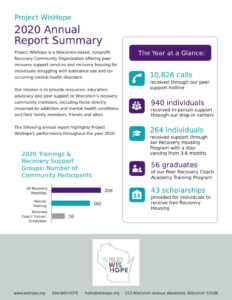There is an optimism that every addicted person must confront, as it represents a break from the reality of alcohol and/or substance use disorder. The nature of this condition forces coping individuals to surrender all illusions of self-control in order to take actionable steps towards recovery. Understandably, the human species as a whole is not great at admitting to a lack of control. Prior to acknowledging one’s own powerlessness, those grappling with the incomprehensible limits of addiction’s persuasions often protect their egos with deceit — or at least this is how it appears to most third parties. Anyone who has experienced the cycle of use, abuse, sobriety, and relapse can attest to the bittersweet denial of use disorder which inevitably welds optimism into lies.
THE FEAR OF JUDGMENT
When someone coping with use disorder first confronts the difference between their relationship with alcohol and/or substances and the habits of others, the common reaction is denial. Some manifestations of denial might sound like dismissals such as “All of my friends drink” or “Everyone is addicted to something” or even tension-cutting jokes like “This is my medicine.” However, the need to say anything at all should serve as a potential indicator that this type of use falls outside the norm, therefore requiring some explanation. Identifying the potential presence of addictive tendencies isolates individuals from their community, sowing fear of judgment from others as well as themselves.
External judgments can act as a motivation for changes in behavior to varying degrees. If one’s inclination tends toward extroversion, the necessity to feel accepted by others can both fuel abuse of alcohol and/or substances and spur the desire to seek recovery, depending on the likelihood of their inner circle to enable. Hearing about their habitual reliance on alcohol and/or substances from a group of loved ones, along with what changes can be made, can assist with the acceptance of one’s own mental health.
Self-criticism can prove a harder nut to crack. Primary to neglecting one’s own health concerns is a reluctance to cede the pride of suffering. For many reasons — too many to fit into this particular article — Western society champions a hero complex, where martyrdom is required to merit any degree of positive attention. Towing the “it’s all good” line can only carry toxic sufferers so far before reeling back with a recoiling kick. Following this logic to its end typically results in an emotional, physical, and financial rock bottom for many. In most cases, individuals deny the truth that they are hurting due to the fear that they might self-criticize upon admitting to any degree of use disorder, which the mind’s narrator can toxically deem as a failure or shortcoming.
THE FEAR OF LACK OF CONTROL
Another reason that denial persists as such a common and effective territory for the addictive mindset to flourish relates to the overconfidence effect. The overconfidence effect manifests as a bias that many develop in an attempt to self-assure that their actions will be their saving grace. Overestimating one’s own abilities to “work harder to make up for today” or “catch a big break in the near future” offers an understandable escape from the reality of stress and exhaustion. Underlying these fantastic departures from reality lingers a fear of surrender — because if the confidence projected outwardly distorts our reality, then what safety net awaits us when we slip up?
The illusion of control directly pertains to the logic of an individual particularly enmeshed in an addictive cycle. This state of mind is fondly referred to by those familiar with group recovery as “stinking thinking.” With the aforementioned mindset in full swing, individuals might exaggerate their own capacity for change and control through instances of temptation. Everyone wants the claim to fortified willpower and enduring personal strength, but those coping with use disorder are biologically hardwired to ingest their alcohol and/or substance of choice as the only means of achieving some semblance of a reward in their daily life.
Admitting that a clandestine mental health condition holds sway over our life decisions is one of the most difficult things a person can do. Doing so acknowledges the utter lack of control with which we conduct ourselves every moment of every day — and that is just scary, plain and simple. Once this realization is made for ourselves, the natural extension to others implies how little control people have over their own actions. Initially, the thought of billions of humans operating with a lack of control brings to mind comparisons of thoughtless zombies or hardwired robots incapable of individual thought. However, the recognition of moments when we do exercise control within this context allows for a greater appreciation of our own agency as a unique and fleeting choice — one that is worthy of awe, respect, and mindfulness.
The effects of use disorder orbit all relationships for individuals coping with addiction. Early into a relationship, someone with alcohol and/or substance use disorder may exhibit denial of their habits in an attempt to hide symptoms of their abusive relationship with their alcohol and/or substance of choice. Denying the existence of a problem, while problematic for open and honest communication practices, can also represent the first step on the path to recovery. As stressful and deceitful as denial can be, the truth behind addiction entails a willingness to use above all else, including honesty. If you or a loved one have begun to deny obvious signs of abusing substances, do not hesitate to reach out for assistance. At WisHope, we understand that the road to recovery is a life-lasting pursuit, and we aim to provide you the tools and resources to do this, long after your stay at our treatment facilities or recovery homes. Don’t wait to get help — call us today at (844) 947-4673.


